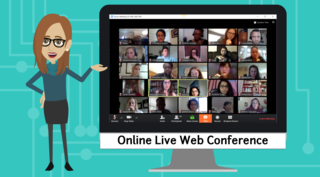Race and Ethnicity
Americans, Inflamed: Why Conversations on Race Feel Unsafe
Scientific thinking can bolster education and our riven society.
Posted June 3, 2020

For many years, my team and I have been teaching the course The Psychology of Diversity on campus and also live online via Zoom at Harvard https://scholar.harvard.edu/weissmark/classes (yes, some of us were teaching on Zoom before the pandemic). And for many years, I have been researching and writing on diversity. Recently, Oxford University Press released my new book on the subject, The Science of Diversity.
In my years of teaching and researching, I have observed the discourse on diversity issues become increasingly polarized. Recently, I received numerous calls and emails from colleagues and students who have expressed their discomfort with this polarization. “It no longer feels safe to have conversations with people who have a different viewpoint” they say. Diversity issues are nuanced, but without the ability to have truly open discussions, people won’t feel safe to express their ideas, and real understanding and growth cannot be achieved.
I would like to share some lessons with you that I have learned about teaching, writing, and researching on polarizing topics such as race, slavery, political ideologies, and partisan identities.
Calls for institutional and national conversations and mandatory diversity workshops to discuss race relations, personal biases, and discrimination generally end up being debates, politicized and often resented. Similarly, conversations on these topics in the classroom can end up as arguments.
Students may get locked into the positions they already have. They may do more fighting and defending than conversing. And few subjects start more online and classroom fights and debates than race, bias, slavery, and discrimination.
Conversations can be a bond between persons, but they are not a very powerful bond when there are strong feelings on two sides of a polarizing topic.
What tends to go missing from conversations on polarizing topics is a facilitated conversation using scientific thinking. This is the method used in science and problem-solving education. It is a dialectic between persons holding different hypotheses about a topic but wishing to understand the other and test their views. One does not judge the other for their view. One does not expect the other to change or think differently. Rather the expectation is that one will learn to consider the topic scientifically.
Briefly put, from the standpoint of an individual, scientific thinking is the habit of examining conflicting hypotheses on polarizing topics by imagining oneself changing one's hypothesis within the process. The circular process of scientific thinking requires that every hypothesis should provoke consideration of its denial. The individual recognizes that he or she at all points has incomplete knowledge that may be incorrect and full of gaps.
Personal feelings and views are the starting points of a hypothesis. The outcome of such conversations might be the refutation of a relevant view, or of a synthesis, or an integration of the opposing views, or a qualitative improvement of the conversation. During these conversations, students are posed with hypotheses and asked to "hear the other polarizing side." (For a more detailed description of scientific thinking, please see my Harvard Gazette article on how to learn to think scientifically.)
During these difficult pandemic times, I believe literacy in scientific thinking is a valuable portable, and foundational skill not only for the Harvard community but for all citizens in a democratic society. People often comment that our classes and seminars feel therapeutic not because it was an opportunity to vent and argue, but because they felt heard and seen, and therefore safe to voice contrary views. They take away the experience that tolerance, perspective-taking, and a scientific understanding of diversity are prerequisites for meaningful conversations on polarizing topics.
Recently, my team and I submitted a grant proposal titled "The Science of Diversity Educational E-Learning Video Series" that advanced to the final round of the Harvard Culture Lab Innovation Fund Competition. As finalists, we were asked to prepare a 5-minute pre-recorded video pitch to share with the judges demonstrating what makes the science of diversity method unique and useful for conversations on polarizing topics. Watch the video here.
It is a universal truth that diversity of views on polarizing topics is perpetual. In a democracy, we are assured that both minority and majority views are heard. Scientific thinking is a fair-minded method for evaluating conflicting views.
Copyright © Mona Sue Weissmark. All Rights Reserved.
References
Weissmark, M. (2020). The Science of Diversity. Oxford University Press, USA.
Weissmark, M. (2004). Justice Matters:Legacies of the Holocaust and World War II. Oxford University Press, USA.
Weissmark, M. & Giacomo, D. (1998). Doing Psychotherapy Effectively. University of Chicago Press, USA.




